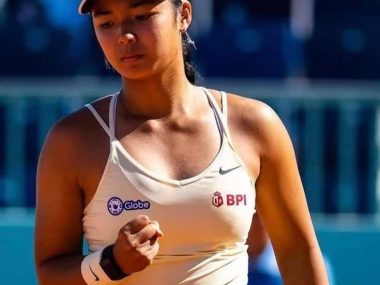The Canadian Open final delivered plenty of drama on the court, but it was Naomi Osaka’s post-match actions that have kept the tennis world buzzing. Following her defeat, Osaka’s emotional demeanor and heartfelt words drew both praise and criticism from fans. Now, Coco Gauff’s former coach has weighed in, offering his perspective on the incident and sparking new debate within the sport.
Osaka, who has been candid about her mental health journey, was visibly emotional after the match. She thanked the crowd, acknowledged her opponent, and spoke about her recent struggles on the tour. While many applauded her openness and grace, some online critics questioned her approach, claiming it distracted from the competitive spirit of the final.
Patrick Mouratoglou, who once coached Coco Gauff and has worked with some of the game’s biggest stars, shared his opinion in a recent interview. According to Mouratoglou, Osaka’s behavior was both genuine and important for the future of tennis. “Naomi is authentic, and that’s what fans want. We can’t ask players to be real and then criticize them when they show emotion,” he said.
Mouratoglou emphasized that tennis has long been dominated by a culture of stoicism, where players are expected to hide their vulnerabilities. He believes Osaka’s willingness to show her feelings sends a strong message to younger athletes. “She’s breaking a barrier. People forget these players are human beings, not robots,” he explained.
The former Gauff coach also noted that the public should consider the pressure Osaka faces. As a four-time Grand Slam champion and one of the most recognized athletes in the world, her every move is scrutinized. “When Naomi speaks after a match, she’s not just addressing the tennis world. She’s speaking to millions globally. That comes with an enormous amount of responsibility and stress,” Mouratoglou added.
Osaka’s post-match comments at the Canadian Open included praise for her opponent’s performance, reflections on her own journey, and an emotional nod to her fans for their continued support. She admitted that returning to top form has been a challenge but expressed determination to keep fighting.
For Mouratoglou, this mindset is exactly what makes Osaka a role model. “She’s not afraid to show that success isn’t a straight line. That’s real life, and young players can learn from that,” he said.
Fans remain divided over the incident, with social media debates continuing days after the final. Supporters argue that Osaka’s authenticity is refreshing in a sport often dominated by scripted responses, while critics feel post-match speeches should remain focused solely on the competition.
Regardless of opinion, one thing is clear: Osaka’s actions have sparked meaningful conversations about mental health, sportsmanship, and the emotional realities of professional tennis. And with respected voices like Coco Gauff’s former coach backing her, the discussion is likely far from over.






